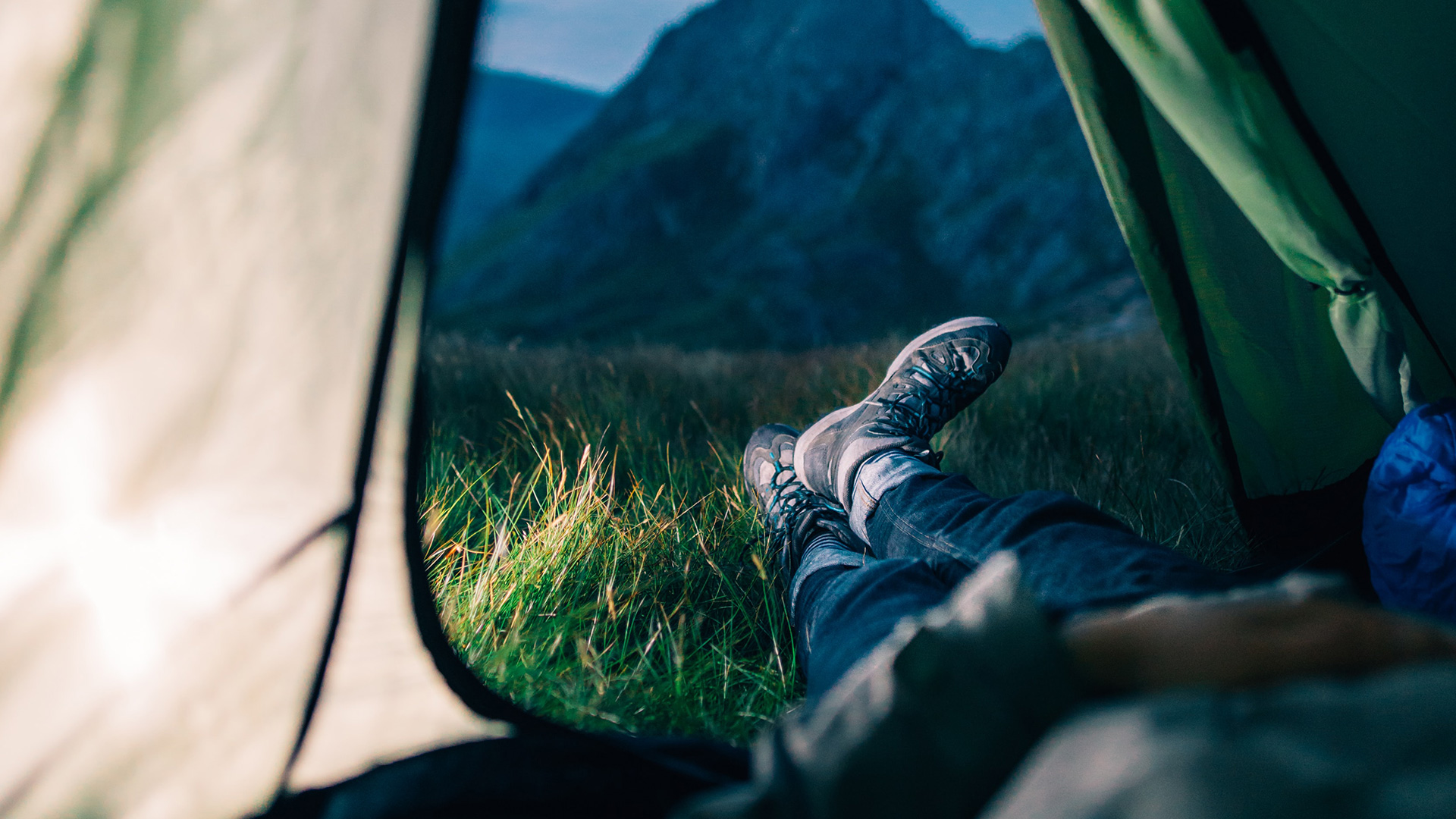Wild camping rules: where can you legally wild camp in the UK and Europe?
The rules differ area by area, so here's where you can wild camp (officially) in the UK, France, Italy and more


One of the draws of camping is the chance to get back to nature. Many people choose to 'wild camp' – that is, pitch up somewhere that's not an official campsite – to heighten that feeling. If you follow certain wild camping guidelines, it can be a relaxing, safe and cost-effective experience.
Is wild camping legal? In many places, the answer is no. And although you can sometimes get away with it (not that we'd condone such behaviour, of course), if you get caught and fined, chances are you'll end up paying a lot more than you would have done shelling out for a campsite for the night.
However, there are plenty of places around Europe where wild camping is officially allowed. This article explains exactly what the deal is in several of the popular European holiday destination countries. If you're wanting to try it, make sure you're kitted out properly with one of the best backpacking tents, and if totally wild camping doesn't appeal, check out Pitchup's 'Nearly Wild Campsites'.
Can you wild camp in England?
Only with permission of the landowner
"The UK has some of the most beautiful countryside, with miles and miles of green fields, perfect for camping. However, most areas within the UK prohibit you from pitching up wherever you want," says campsite directory Pitchup. "Wild camping is only legal in England if you have asked for the landowner’s permission, as most land in England is privately owned."
There's one exception in England, and that's Dartmoor National Park. Here, wild camping is officially allowed, although only in certain areas.
Can you wild camp in Wales?
Only with permission of the landowner
Get all the latest news, reviews, deals and buying guides on gorgeous tech, home and active products from the T3 experts
As is the case in England, officially you need to ask the landowner’s permission before wild camping in Wales.
Can you wild camp in Scotland?
Yes (with caveats)
"In Scotland right-to-roam laws are still in place, which means that wild camping is still legal," says Pitchup. You do, however, need to follow the Scottish Outdoor Access Code. Also be aware that in certain popular camping areas like Loch Lomond and the Trossachs National Park, you'll need to buy a camping permit between the months of March and September. These are cheap (around £4 a night) but can sell out quickly. Pitchup recommends getting organised around four months in advance.
Can you wild camp in Germany?
No
"Wild camping is strictly prohibited in Germany and if you pitch your tent in a German forest, you risk receiving a fine of up to 500 euros - or even more if you do so with a camper van," says Pitchup.
Can you wild camp in Portugal?
Yes (with caveats)
Portugal's relationship with wild camping has changed quite a bit over the years. "Wild camping in Portugal has always been prohibited, however, it was tolerated for a long time," explains Pitchup. "Since January 2021, action was taken against illegal camping, as motorhomes and campervans caused too many troubles around the country, leaving rubbish around and ruining natural areas."
However, in late 2021, a new law came in that changed all that, and permitted wild camping under certain conditions. Currently, so long as you're outside of protected areas, you're allowed to stay overnight for up to 48 hours in one municipality. There's a fines between €60 and €300 for violation of those rules.
Can you wild camp in Italy?
Only with permission of the landowner
Just as in England, to wild camp in Italy you need to get permission from the landowner. Fines range between €100 and €500 if you are caught, and authorities regularly patrol tourist areas and coastlines to enforce the rules.
Can you wild camp in Croatia?
No
Wild camping in Croatia is prohibited; a rule that's enforced strictly in tourist areas, along the coast, and in national parks. You can be fined 3000kn (around 400 euros) if you are caught camping outside of registered campsites or campervan-approved parking lots.
Can you wild camp in France?
... maybe?
"Wild camping in France is legally a grey area, however, is generally tolerated with the permission of landowners, or if you are far away from tourist sites," says Pitchup. "In the northeast, the Morvan peaks are a popular choice, and in the south, there are several wild camping spots around Saintes Maries-de-la-Mer in the Camargue. Generally, you are not advised to stay beyond 9am the next day and they hate people lighting campfires."
Can you wild camp in Greece?
Only with permission of the landowner
Officially, wild camping in Greece is prohibited, although it's generally considered okay if you have the landowner's permission. "Whilst it is generally a grey area, many people are currently doing it, including the Greeks," says Pitchup. "During summer, all Greek islands are stormed by free campers with their tent ready to spend some nights on amazing beaches with the best view of the sea."
Can you wild camp in Spain?
No
Wild camping is generally not allowed in Spain, and you also have to be careful about how you park up. "It is illegal to park in any wild, non-camping place and take out the awning, table, chairs or even open the windows (as long as they are not sliding) because that would already be called camping," says Pitchup. "This also applies to beaches, and in Spain camping on the beach, or any form of sleeping on the beach is forbidden." You can be fined up to 1000 euros in some municipalities.
Can you wild camp in Slovenia?
No
In Slovenia, wild camping can also be known as boondocking, dry camping, or dispersed camping. Whatever you call it, it's not allowed.

Ruth was T3's Outdoors and Wellness Editor from 2020 to 2022, covering hiking, camping and adventure sports kit, as well as mattresses, sleep accessories, yoga and general wellness. She's now a Homes Editor at sister site TechRadar, where she deals in all things air (vacuum cleaners, robovacs, fans and air purifiers), and hair (hair dryers, straighteners and stylers).